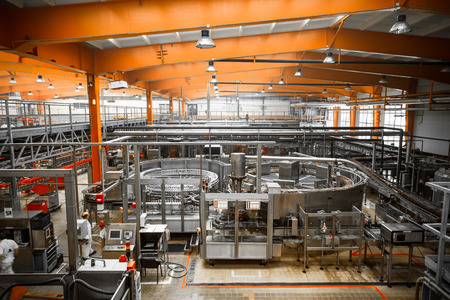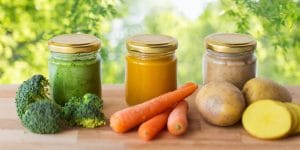
The answer is: “Yes, absolutely, tunnel pasteurizers can be part of the manufacturing process.” In fact, when it comes to many types of foodstuffs, they could be your best option.
Proper pasteurization is extremely important. Right behind this number one concern is the need to have the best pasteurization process in place given the food you’re processing. Using equipment that can make the procedure fast, efficient, and effective is necessary.
This is where tunnel pasteurizers can help. Continue reading to learn more about its benefits, what can be pasteurized, and what exactly pasteurization is.
What Is Pasteurization?
Pasteurization is a food preservation method that uses heat to kill pathogenic bacteria. Moderately high temperatures, 62°C to 100°C (143.6°F to 212°F), are applied for 15 to 30 minutes in order to kill certain microorganisms and render certain enzymes inactive.
Food can become contaminated after having been pasteurized. Thus, all pasteurized products still need refrigeration after being exposed to air because all types of pathogens aren’t destroyed at these moderately high temperatures.
In addition to heat-processing, food products can be pasteurized by being irradiated by gamma rays. Gamma irradiation doesn’t make food radioactive.
Benefits of Pasteurization
The benefits of pasteurization are many:
- Kills harmful microorganisms and pathogenic bacteria
- Reduces the spread of debilitating diseases, such as dysentery, typhoid fever, scarlet fever, polio, and tuberculosis
- Controls vegetative bacteria
- Destroys certain parasitic foodborne pathogens and controls others
- Improves the quality of certain foods, such as milk and milk products
- Keeps food from spoiling quickly
- Increases the shelf life of foods
- It extends the length of time certain foods can remain outside the refrigerator
The Disadvantages of Pasteurization
However wonderful pasteurization is, it still has some disadvantages.
- The process doesn’t kill all microorganisms, pathogenic bacteria and harmful enzymes
- Foods can still become contaminated after the process
- Pasteurization can negatively affect the flavor, color, and texture of the food or beverage
- It can negatively affect the nutrient composition of foods
Examples Of Foods That Are Pasteurized
The number of foods that are pasteurized exceed those that aren’t. Some of the foods include:
- Liquids
- Milk
- Cream
- Salad dressing
- Water
- Juice
- Wine
- Beer
- Particulates
- Stew & soup
- Baby food
- Yogurt
- Canned goods
- Eggs
- Meats
- Red meat
- Poultry
- Fish
- Shellfish
- Lamb
- Other
- Some fruits, vegetables, and spices are subjected to minute quantities of gamma radiation
What Are Tunnel Pasteurizers?
A tunnel pasteurizer is a large chamber or cabinet made of stainless steel. They can come in a range of sizes and dimensions with technical specifications to suit the particular type of food or beverage they’re to treat.
Learn More: Tunnel Pasteurizers Vs. Flash Pasteurization
The Process of Tunnel Pasteurization
- Once bottles are filled with a food or beverage product and closed, they’re sent on a conveyor belt from one side of the chamber to the other
- Within the tunnel, they are subjected to the actual pasteurization process in order to inhibit the enzymes that encourage spoilage and control pathogenic microorganisms
- They pass under sprays of hot water, sit in a hot water bath or are subjected to steam
- The bottles undergo increasingly hot water temperatures until they reach pasteurization temperature
- The bottles continue on until they reach the other side of the chamber. There, they’re cooled with cold water that is about 20°C (68°F)
How Tunnel Pasteurizers Benefit The Food & Beverage Manufacturing Process
A tunnel pasteurization system can easily fit into your manufacturing process. Once a food or beverage product is jarred, bottled, canned and sealed up, it runs through the tunnel pasteurizer system; and that’s it.
End Point Technology
The tunnel pasteurization process can be one of the last stops of your manufacturing process. It’s often called an “end point” pasteurization technology because it destroys harmful bacteria, enzymes, and micro-organisms from food and beverages before they go to the consumer.
Easy to Operate and Reliable
Tunnel pasteurizers provide a simple and easy alternative to flash pasteurization and sterile filtration. The process is easy to operate and reliable.
Tunnel pasteurization is one of the methods that doesn’t cause flavor deterioration. Its biggest drawback is that it can be an expensive alternative.
Automatic Safeguards
Tunnel pasteurizers can be equipped with automatic-stop mechanisms to safeguard against over-pasteurization of the product if the internal conveyor happens to halt or malfunction. This keeps your product safe and in optimal condition for consumption.
Variety of Size and Dimensions
Tunnel pasteurizers come in different sizes and dimensions depending upon the product being packaged, the container needed, and the required output. This equipment can be custom designed to suit the needs of the client.
Tunnel Pasteurizers For Your Company’s Pasteurization Needs
As you evaluate different pasteurization processes and technologies, you must weigh the effectiveness of a process, the effect a process may have upon the flavor, nutrients, texture, etc. and the safety hazards of the process.
Available in a range of sizes, dimensions and technical specifications, there’s sure to be tunnel pasteurization solutions that can fit your needs. However, if you find there aren’t, a custom-designed tunnel pasteurizer can be made to suit your company’s needs.
Learn more about our state-of-the-art tunnel pasteurizing systems from Smart Machine Technologies.
Learn More About Our Pasteurizers




 Contract
Contract Food & Bev
Food & Bev